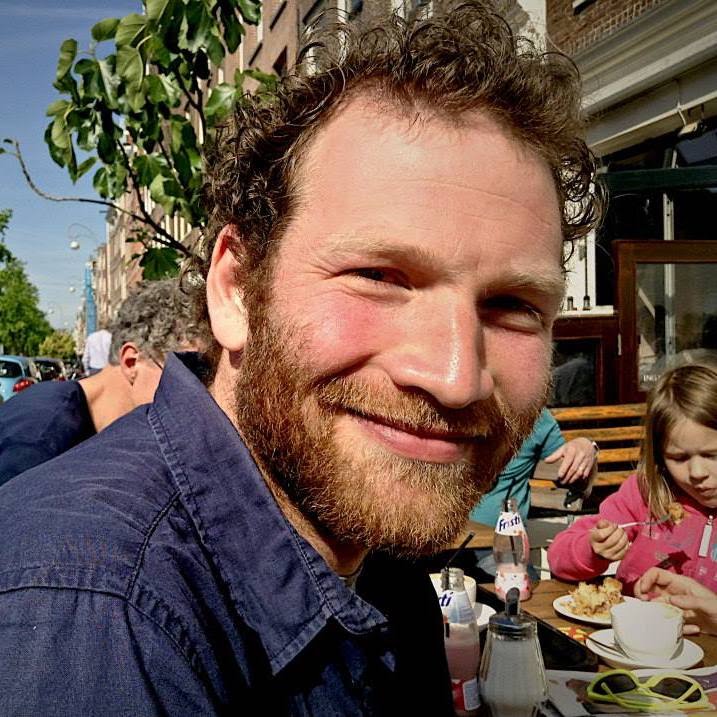
Semantics and Pragmatics: the Inquisitive Turn : Fall 2010
• Amsterdam • Master of Logic, University of Amsterdam
The course relates to a recently started NWO-research project on inquisitive semantics, logic, and pragmatics. Inquisitive semantics offers a new logical-semantical model for the interpretation of natural language. The proposition expressed by a sentence is viewed as a proposal to update the common ground of a conversation, where it is a characteristic of inquisitive semantics that a speaker may draw attention to several alternative possibilities for updating the common ground, from which the hearer is invited to choose. The new semantic framework gives rise to new directions for the study of pragmatics, and also leads to new logical research questions.
In the first part of the course we discuss the logical and philosophical foundations of inquisitive semantics and pragmatics, and will illustrate its applications in several empirical linguistic domains. The last part of the course is intended to have the nature of a research colloquium. Students will choose a small research project on logical, philosophical or linguistic aspects of inquisitive semantics and pragmatics, write a small research report, and present their findings to the other students.


Course announcements
Project presentations on 8/12 and 15/12 (posted: 3/12/10)
The schedule for the project presentations has been posted on the course website.
Reading for 24/11 (posted: 20/11/10)
The paper on radical inquisitive semantics has been posted. We will continue discussing this material on Nov 24.
Mid-term paper (due Nov 1) (posted: 21/10/10)
The purpose of the mid-term paper is to identify one or more issues that you would like to investigate further during the second half of the course, and to sketch your preliminary thoughts about these issues in a short paper (5-10 pages). You are free to pick a topic that is logically oriented, or more linguistic, or more philosophical, whatever fits your interests best. If you have any questions, feel free to get in touch with us.
Reading material for 20/10 (posted: 18/10/10)
Please read Ivano’s Amsterdam Colloquium paper, and if possible also have a look at chapter 2-4 of Kata’s dissertation and chapter 6 of Ivano’s thesis. Links to these documents can be found in the schedule.
Reading material for 13/10 (posted: 07/10/10)
Next week we will discuss comments by Dustin Tucker on the semantics and pragmatics paper, and our reply to these comments. Please have a look at these documents in advance and share your ideas with us next week in class.
We will also extend the system we have presented so far to the first-order setting, on the basis of Ivano Ciardelli’s AC paper.
Programme and reading material for 29/9 (posted: 23/09/10)
During the first part of the class we will finish our exploration of inquisitive logic, and the connection with intuitionistic and classical logic.
Then we will turn to the philosophical foundations of inquisitive pragmatics. We would like this part of the class to be a discussion, rather than just a presentation. So please carefully read the pragmatics chapter from Gamut and section 4 of the inquisitive semantics and pragmatics paper, and share your questions and/or ideas with us in class.
Finally, we decided not to explicitly talk about the move from the pair semantics to the generalized semantics in class. Please carefully go through the arguments in section 8 of the inquisitive logic paper, and let us know if you have any questions.
Reading material and exercises for 22/9 and 29/9 (posted: 16/09/10)
When reading the Inquisitive Semantics and Pragmatics paper, focus for now on the semantics sections, 1-3, and also have a look at section 5.3, about compliance. We will look at the remaining sections of the paper in a few weeks time.
As an exercise, it would be good to prove the facts about entailment in section 3.4. This will be an excellent way to get to know the system better. If you encounter any difficulties, feel free to ask us next time, or drop by our offices.
Next week we will begin to present some material from the Inquisitive Logic paper as well. If you want to read ahead, focus on sections 1,2,7,8,9. Also try to establish at least a global understanding of section 3. Sections 4,5,6 are optional, especially recommended for those of you who are specifically interested in the logical aspects of the framework.
Reading material for 15/9 (posted: 10/09/10)
The reading material for the first week consists of a short note by Floris and Jeroen on the history of inquisitive semantics, and the introductory chapter by the editors of the book “Questions in Dynamic Semantics”. Sections 1.1 and 1.2 of the article give a good overview of semantic and pragmatic approaches to questions and answers that form the roots of inquisitive semantics.
The second chapter of the book is a paper by Jeroen (first published in 1999) called “The Logic of Interrogation” which can be seen as the immediate predecessor of inquisitive semantics. Together with the first part of Salvador Mascarenhas MSc thesis on inquisitive semantics it is suggested for optional further reading. You also find there the bulky article on Questions by Jeroen and Martin Stokhof from the Handbook of Logic and Language.
Assignments and grading
- Mid-term paper
Length: 5-10 pages
Due: Nov 1
Weight: 30% - Presentation
Length: depending on total number of presentations
Topic: either your own paper-in-progress, or related work
Date: Dec 8 or Dec 15
Weight: 20% - Final paper
Length: 10-20 pages
Due: Dec 20
Weight: 50%
Potential additional topics
- First-order inquisitive logic: Ciardelli-09, Sano-10 (in progress).
- Questions in Yukatek Maya: Anderbois-10
- Sluicing: Anderbois-10salt
- Alternative questions: Roelofsen and van Gool-09, Pruitt and Roelofsen-10 (in progress).
- Unconditionals: Rawlins, Kaufmann.
- Hypothetical information exchange: supposition, modal subordination, conditional questions, counterfactuals.
- Inquisitiveness cross-linguistically: Haspelmath-01, Bhatt-00
- Questions and indefinites in dynamic semantics: Haida.
- Intervention effects: Beck, Kim, Pesetsky, Haida, Cable.
- Question-based models of discourse: Ginzburg, Roberts, Büring.
- Acquisition of disjunctive questions in Japanese and Mandarin: Akagi.
- Exhausitivity marking in Hungarian: Balogh-09, ch.4,5
Schedule
| Date | Topic | Reading | Optional reading |
|---|---|---|---|
| Week 1 (8/9) | General course intro: from truth-conditions to propositions as proposals (slides) Basic intro to inquisitive semantics (slides) |
GR-10-notes ABD-07 |
Groe-99 Masc-09-first-part GS-99 |
| Week 2 (15/9) | Inquisitive semantics (restricted, support-based) | GR-09 | Groe-09 |
| Week 3 (22/9) | Inquisitive logic | CR-10-jpl | CR-09-tark |
| Week 4 (29/9) | Inquisitive logic Philosophical foundations of inquisitive pragmatics |
CR-10-jpl Gamut-91 GR-09 |
Ciardelli-09a |
| Week 5 (6/10) | Formalization of inquisitive pragmatics Computing compliance (website) |
GR-09 | CCGR-09-lori |
| Week 6 (13/10) | Inquisitive implicatures in alternative questions Beyond compliance |
GR-09 Dustin-09 GR-09reply |
|
| Week 7 (20/10) | First order semantics (slides) Focus, congruence, and exhaustification (slides) |
Ciardelli-09b | Ciardelli-09a chapter 6 Balogh-09 chapters 2-4 |
| Break (midterm paper due Nov 1) | |||
| Week 8 (3/11) | Attentive content | CGR-10 | |
| Week 11 (10/11) | Attentive pragmatics Disjunctive questions, intonation, and highlighting |
CGR-10 RvG-10 |
|
| Week 10 (17/11) | Radical inquisitive semantics | GR-10 | |
| Week 9 (24/11) | Radical inquisitive semantics | GR-10 | |
| Week 12 (1/12) | An algebraic perspective on inquisitive semantics Quality implications |
GR-10b | |
| Week 13 (8/12) | Project presentations: 1. Floor 2. Kelly 3. Morgan |
||
| Week 14 (17/12) | Project presentations: 1. Bruno 2. Jelle 3. Kasper and Maya |